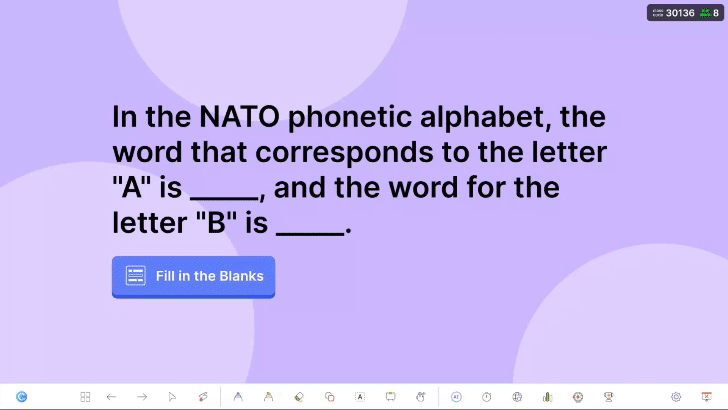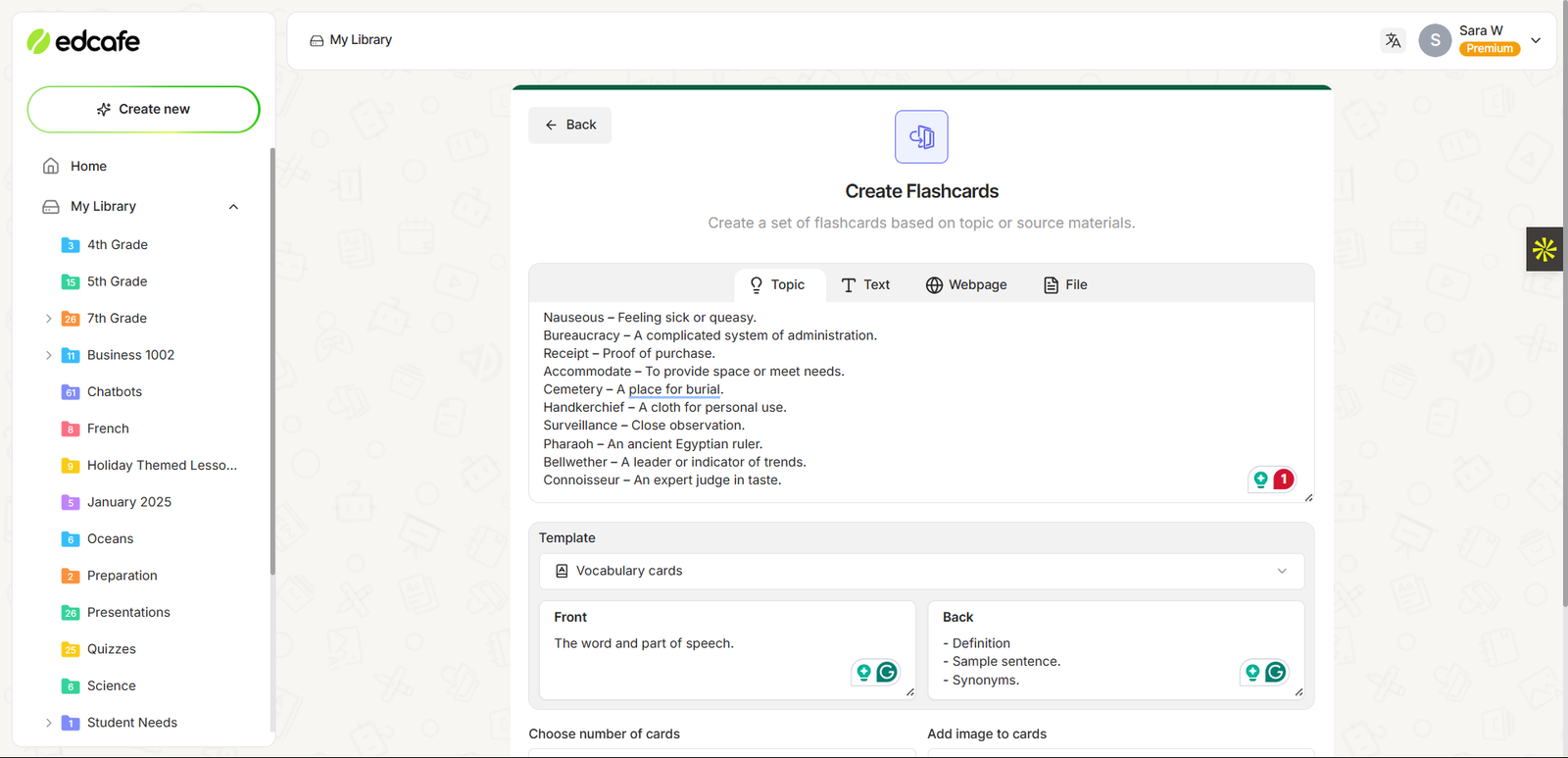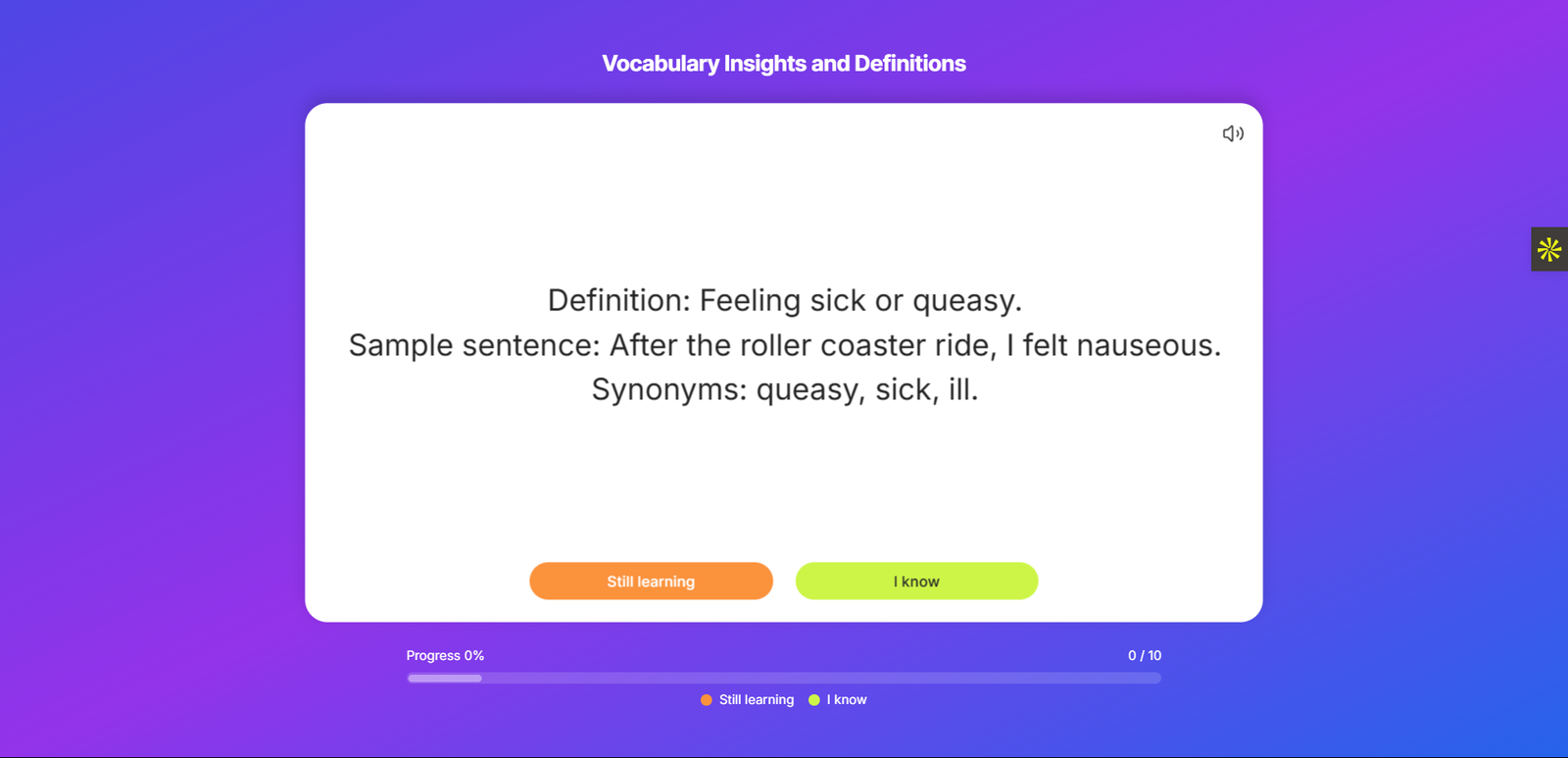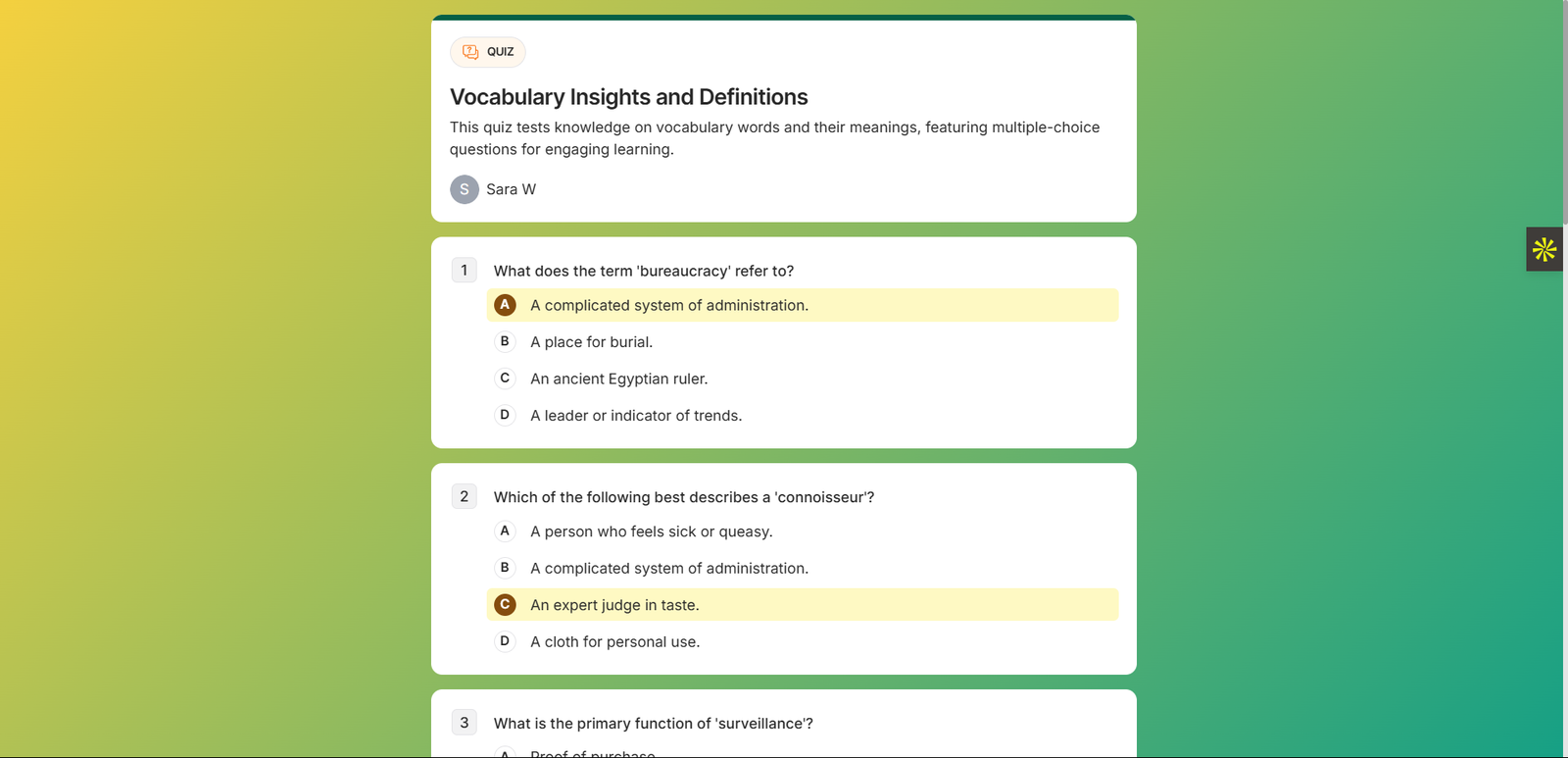English is full of deceptively hard words to spell. Though it’s a rich and expressive language, its silent letters and inconsistent rules can make spelling a challenge, from everyday mix-ups like “definitely” to complicated ones like “onomatopoeia.”
In this blog, we’ve compiled 50 hard words to spell, complete with definitions and memory tricks to help you conquer them. We also share tips for recognizing tricky spellings, plus a bonus list of words that are just as tough to pronounce as they are to spell.

Why Are Some Words So Hard to Spell?
English spelling can be confusing because it’s influenced by many different languages, each with its own rules.
Some words contain silent letters, like the “k” in “knife,” while others don’t sound the way they look, like “colonel.” Double letters often throw people off in words like “accommodate” or “embarrass,” and homophones, words that sound the same but are spelled differently, make things even trickier, such as “their,” “there,” and “they’re.”
In short, there are a lot of hard words to spell in English, and knowing how to spell these tough words is not just about memorization; it’s about conceptually understanding where these words come from and how they function.
General Tips for Spelling Difficult Words
Improving your spelling takes time and intentional practice. Here are some effective tips to help you tackle tricky words:
- Break words into syllables: For example, “definitely” becomes “def-i-nite-ly.” Chunking makes longer words easier to handle.
- Say it how it’s spelled: Exaggerate pronunciation when needed—like “Wed-nes-day”—to reinforce letter placement.
- Use mnemonics: Memory aids like “necessary has one collar and two sleeves” (one “c,” two “s”s) help tricky spellings stick.
- Spot prefixes and suffixes: Recognizing common parts like “un-“, “-tion,” or “re-” gives clues to proper spelling.
- Write it out repeatedly: Muscle memory from writing a word helps embed the correct spelling.
- Keep a personal word list: Track the words you miss most often and review them regularly.
Spelling doesn’t improve overnight, but with consistent practice using these strategies, you’ll start to notice real progress.

Everyday Hard Words to Spell That Commonly Trip People Up

1. Definitely – Without a doubt. Often confused as “definately.”
Tip: It comes from “definite” + “ly.”
2. Separate – To divide or set apart. Spelled with an “a” in the middle, not “e.”
Tip: Think “a rat” is in “separate.”
3. Embarrass – To cause shame or awkwardness. Double “r” and double “s.”
Tip: It’s so embarrassing it needs double everything.
4. Occasion – A particular time or instance. Two “c”s and one “s.”
Tip: Celebrate the “cc”asion!
5. Privilege – A special right or benefit. Often misspelled with “edge.”
Tip: No “d” in privilege!
6. Restaurant – A place to eat. The middle “au” throws people off.
Tip: “Rest-au-rant” sounds fancy.
7. Vacuum – A device that sucks up dirt. One of the only words with double “u.”
Tip: It vacuums up two U’s.
8. Tomorrow – The day after today. Watch out for that double “r.”
Tip: Think “To-mor-row.”
9. Recommend – To suggest. Double “m.”
Tip: I “commend” you to spell it right.
10. Occurred – Happened. Double “c” and double “r.”
Tip: It occurred with a lot of letters!
Hard Words to Spell with Tricky Silent Letters
11. Pneumonia – A lung infection. Starts with a silent “p.”
Tip: Say “new-monia,” but remember the silent letter.
12. Knowledge – Information or awareness. Silent “k” at the beginning.
Tip: It’s what you “know,” even if the “k” is invisible.
13. Psychology – Study of the mind. Another “p” that stays silent.
Tip: Think “psycho” + “logy”—no need to pronounce the “p.”
14. Aisle – A passage or walkway. Sounds like “isle.”
Tip: The “s” is just along for the ride.
15. Wrestle – To fight physically. Silent “w.”
Tip: That “w” is wrestling with the rest of the word.
16. Gnome – A mythical garden figure. Silent “g.”
Tip: A gnome guards quietly—no “g” sound needed.
17. Ballet – A dance style. Silent “t” from French.
Tip: Elegant like the dance; the “t” steps lightly.
18. Knapsack – A type of backpack. Silent “k.”
Tip: It “knows” it’s on your back.
19. Subtle – Not obvious. The “b” is silent.
Tip: Its spelling is subtle, too.
20. Debt – Money that is owed. The “b” is never heard.
Tip: A silent bill is still a bill!
Homophones That Cause Confusion
21. Their – Belonging to them. Not to be confused with “there” or “they’re.”
Tip: It’s possessive—their belongings.
22. Principal – A school leader. Not “principle” (a rule or belief).
Tip: The principal is your pal.
23. Stationary – Not moving. Don’t mix it with “stationery” (paper).
Tip: Cars are stationary, notes go on stationery.
24. Affect – To influence. Not the noun “effect.”
Tip: Affect is the action.
25. Complement – To complete or enhance. Not “compliment.”
Tip: Something that completes is a complement.
26. Accept – To receive. Not to be mixed up with “except.”
Tip: Accept all cookies—except the oatmeal ones.
27. Desert – A dry, sandy area. Not “dessert.”
Tip: You only want one desert but two desserts!
28. Loose – Not tight. Often confused with “lose.”
Tip: Loose has more room (and an extra “o”).
29. Bare – Without covering. Not to be confused with “bear.”
Tip: You go barefoot, not bearfoot.
30. Sight – Vision or the act of seeing. Confused with “site” or “cite.”
Tip: You see with your sight.
Fancy Words That Feel Like a Spelling Test
31. Onomatopoeia – A word that mimics a sound.
Tip: Think of boom, buzz, and pop—chaotic to spell but fun to say.
32. Conscientious – Careful and responsible.
Tip: It’s con + science + tious—just as thoughtful as its meaning.
33. Silhouette – An outline or shadow of a shape.
Tip: Say it “sil-oh-ette,” but remember that silent “h.”
34. Bourgeoisie – The middle class, typically in a historical or political context.
Tip: It looks fancy because it’s French—and it is.
35. Entrepreneur – Someone who starts a business.
Tip: Break it down to on-tra-pruh-nur and take it step by step.
36. Mischievous – Playfully troublesome.
Tip: It’s three syllables—don’t sneak in a fourth.
37. Parliament – A governing body.
Tip: “Parli” like party—where the real debates begin.
38. Guarantee – A promise of quality or outcome.
Tip: Not “garantee”—watch that second “a.”
39. Rhythm – A pattern of beats or movements.
Tip: No vowels in the middle—just feel the beat.
40. Hierarchy – A system of levels or ranks.
Tip: Starts with “high”—as in high-ranking.
Universally Hard Words to Spell
41. Nauseous – Feeling sick or queasy.
Tip: Comes from “nausea” + “ous”—watch the vowel mash-up.
42. Bureaucracy – A complicated system of administration.
Tip: Think “bureau” + “crazy”—which it often is.
43. Receipt – Proof of purchase.
Tip: That silent “p” just won’t quit.
44. Accommodate – To provide space or meet needs.
Tip: Two “c”s, two “m”s—it’s fully stocked.
45. Cemetery – A place for burial.
Tip: All “e”s—no “a” in sight.
46. Handkerchief – A cloth for personal use.
Tip: It’s “hand” + “kerchief”—don’t forget the silent “d.”
47. Surveillance – Close observation.
Tip: A French import—watch that double “l.”
48. Pharaoh – An ancient Egyptian ruler.
Tip: Sneaky combo—ph-a-r-a-o-h.
49. Bellwether – A leader or indicator of trends.
Tip: Not “weather”—it ends in “wether.”
50. Connoisseur – An expert judge in taste.
Tip: Another French trickster—master the spelling, become a connoisseur.
Bonus: 20 Hard Words to Pronounce

Some words are just as hard to say as they are to spell. This bonus list includes terms that trip people up in conversation due to silent letters, non-phonetic spelling, or tricky syllable stress:
- Worcestershire – Pronounced: WUSS-ter-sheer
- Colonel – Pronounced: KER-nel
- Anemone – Pronounced: uh-NEM-uh-nee
- February – Many skip the first “r”
- Hyperbole – Pronounced: hy-PER-buh-lee
- Quinoa – Pronounced: KEEN-wah
- Gyro – Pronounced: YEE-roh
- Zoology – Often misread as zoo-ology
- Mauve – Pronounced: mohv, not mowv
- Et cetera – Commonly misheard as ek setera
- Cache – Pronounced: cash
- Forte – Often mispronounced as for-tay
- Hors d’oeuvre – Pronounced: or-DERV
- Genre – Pronounced: ZHAHN-ruh
- Debris – Pronounced: duh-BREE
- Bologna – Pronounced: buh-LOH-nee
- Rendezvous – Pronounced: RON-day-voo
- Coup – Pronounced: koo
- Espresso – Not expresso
- Asterisk – Often misread as asteriks
Classroom Extension Ideas
To make spelling practice more fun and effective in the classroom for these hard words to spell, try these three engaging approaches. Each idea includes a consistent step-by-step format so you can implement it smoothly:
Host a Spelling Bee Battle with ClassPoint

Turn your PowerPoint into an interactive quiz arena with ClassPoint. ClassPoint is an interactive teaching add-in for PowerPoint that allows you to add live quiz elements so students can respond directly from their devices.
How to get started:
- Add your spelling question onto a PowerPoint slide (e.g., “Spell the word that means ‘without a doubt'”).
- Click the ClassPoint tab and insert a question type, such as Fill in the Blanks.
- Set the correct answer using the ClassPoint side panel.
- Ask students to join your live session at classpoint.app using the unique code displayed.
What to expect: Students compete in real time, making spelling review fun, fast-paced, and collaborative.

Assign Flashcards for Independent Study with Edcafe AI

Give your students easy access to digital flashcards they can use to study anytime. Edcafe AI helps you generate customized flashcards in seconds. Edcafe AI is a free teaching website for teachers to help them make content quickly and easily to share with students.
How to get started:
- Paste your word list into Edcafe AI’s Flashcard Generator, upload a file, or insert a blog/web URL.
- Let Edcafe AI generate the flashcards (word + definition + example sentence).
- Share the flashcards with your students via the Assign function with a link, or QR code.
What to expect: Students can study in short bursts, using spaced repetition and self-paced review to retain tricky spellings more effectively.

Test Their Knowledge with a Quiz

Reinforce and evaluate spelling knowledge with an AI-generated quiz. Edcafe AI’s Quiz helps you turn your spelling list into a personalized assessment.
How to get started:
- Open the Quiz tool on Edcafe AI.
- Paste or upload your spelling words.
- Choose question formats (e.g., multiple choice, short answer).
- Share the quiz with your class.
What to expect: Edcafe automatically scores responses and gives you insights into student progress—perfect for reviewing commonly missed words and planning follow-ups.

With tools like ClassPoint and Edcafe AI, spelling instruction becomes interactive, efficient, and more enjoyable for both teachers and students.
Conclusion
This list of hard words to spell shows just how quirky English can be. Spelling doesn’t have to feel like a guessing game. Break down hard words into manageable parts, use memory tricks, and keep practicing. Whether it’s writing an essay or competing in a classroom spelling bee, these tips and word lists will help you spell confidently—and pronounce like a pro.
